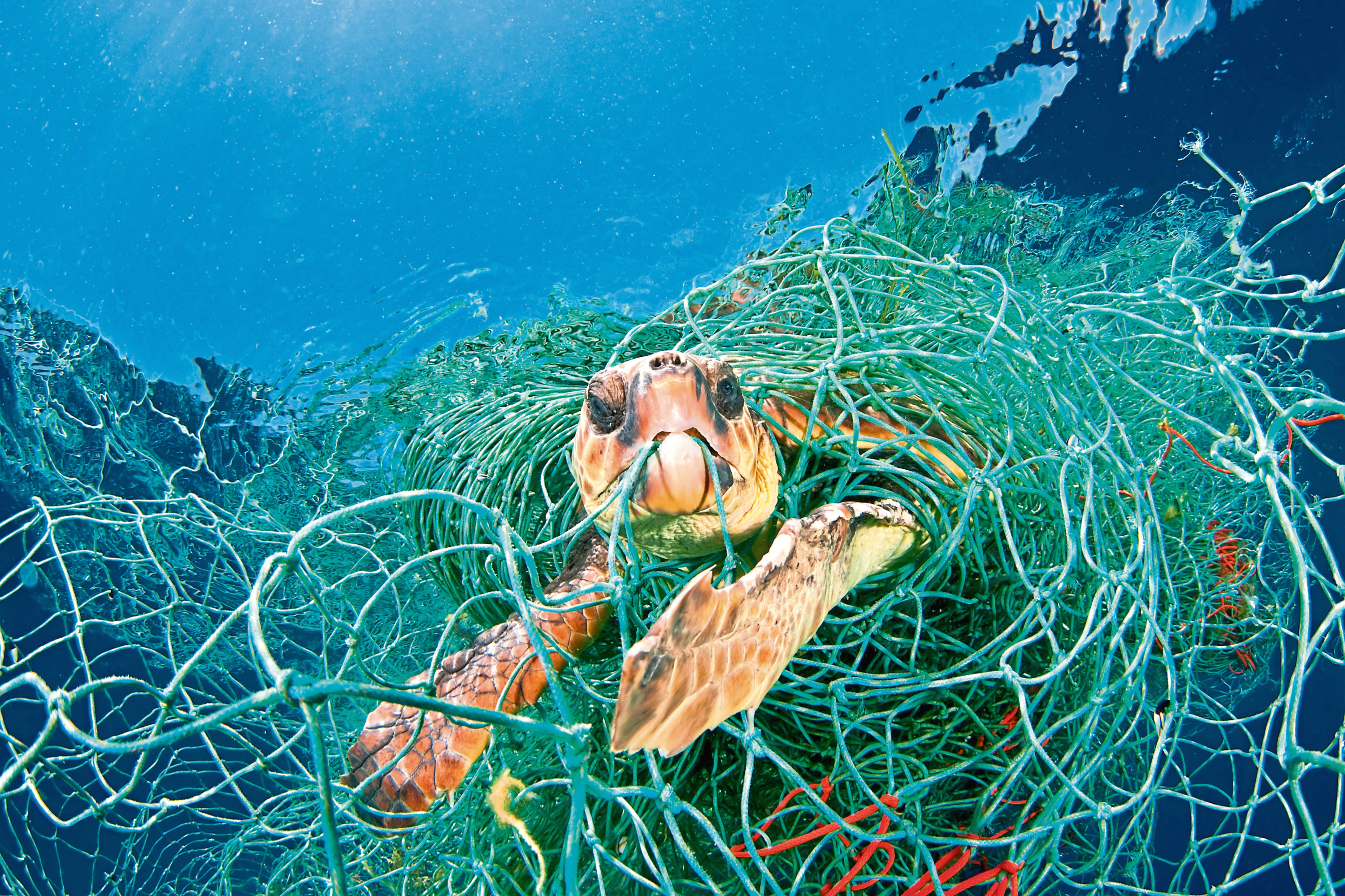
GLOBAL wildlife populations have fallen 60% since 1970 as humans overuse natural resources, drive climate change and pollute the planet, a report warns.
WWF has called for an ambitious “global deal” for nature and people, similar to the international Paris Agreement to tackle climate change, as the conservation charity’s new report spelled out the damage being done to the natural world.
Only a quarter of the world’s land area is free from the impacts of human activity and by 2050 that will have fallen to just a tenth, the Living Planet Report 2018 says.
The percentage of the world’s seabirds with plastic iCLimn their stomach is estimated to have increased from 5% in 1960 to 90% today, and the world has lost around half its shallow water corals in just 30 years.
More than 4,000 species of mammals, reptiles, birds, fish and amphibians fell by an average of 60% between 1970 and 2014, the most recent year for which data is available.
Tropical areas have seen the worst declines, with an 89% fall in populations monitored in Latin America and the Caribbean since 1970.
Species that live in fresh water habitats, like frogs and river fish, have seen global population falls of 83%, according to the living planet index by the Zoological Society of London (ZSL).
From hedgehogs and puffins to elephants, rhinos and polar bears, wildlife is in decline, due to the loss of habitats, poaching, pollution of land and seas and rising global temperatures, the Living Planet Report warns.
Current action is not enough to match the scale of the threat facing the planet, the conservationists claim.
“Exploding” levels of human consumption are driving the impacts on nature due to over-fishing, felling forests to grow crops such as soy and palm oil and the use of pesticides in agriculture.
Climate change and plastic pollution are also significant and growing threats.
But wildlife is not just “nice to have” for humans, the report warns, with human food, health and medicines all relying on natural resources.
All human economic activity ultimately depends on nature, the report said, with globally natural resources estimated to provide services worth 125 trillion US dollars (£97 trillion) a year.
With the world set to review progress on sustainable development and conserving biodiversity under UN agreements by 2020, there is a chance to act in the next two years, the conservation group argues.
A new global deal should be secured, backed by strong commitments from governments and businesses.
WWF chief executive Tanya Steele said: “We are the first generation to know we’re destroying our planet and the last that can do anything about it.
“If we want a world with orangutans and puffins, clean air and enough food for everyone, we need urgent action from our leaders and a new global deal for nature and people that kick starts a global programme of recovery.”
TV presenter and WWF-UK ambassador Ben Fogle said: “I don’t want my children growing up to learn about tigers, rhinos and even hedgehogs through history books and museums.
“I want them to see our world’s diverse and wonderful wildlife with their own eyes.”
Environment Secretary Michael Gove said: “The continued decline in global nature highlighted by this alarming report matters to us all.
“We are committed to being the first generation to reverse the decline in our precious environment and leave it in a better state than we found it.
“By working with countries around the world to develop a new global framework under the Convention on Biological Diversity, we will ensure we leave a legacy of which we can all be proud.”
Sue Hayman, shadow environment secretary, said: “It is ironic that this report comes a day after the Chancellor gave a budget speech that failed to even mention climate change once.
“Britain desperately needs a government that understands the scale of the climate and environmental crisis unfolding.”

Enjoy the convenience of having The Sunday Post delivered as a digital ePaper straight to your smartphone, tablet or computer.
Subscribe for only £5.49 a month and enjoy all the benefits of the printed paper as a digital replica.
Subscribe